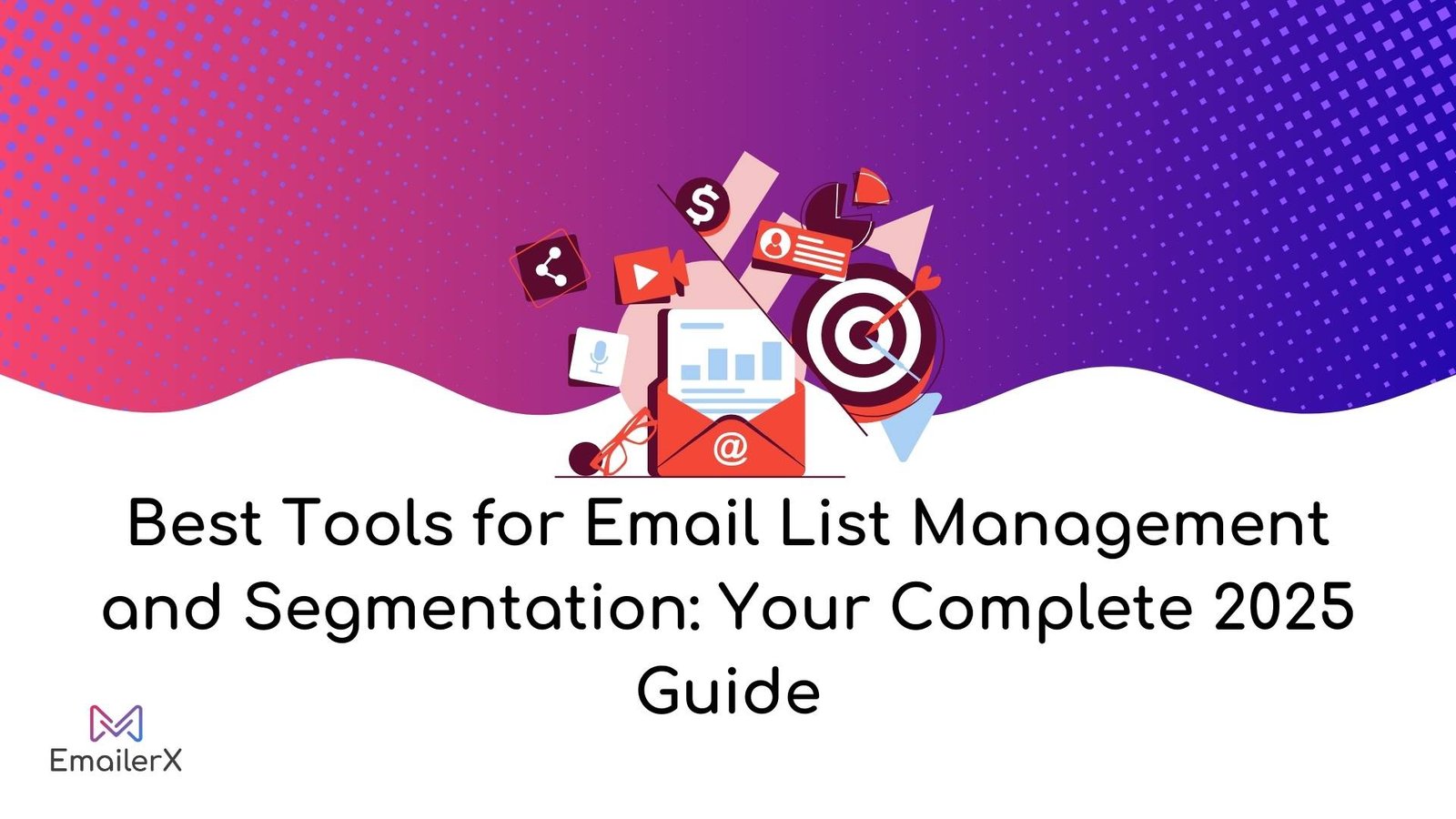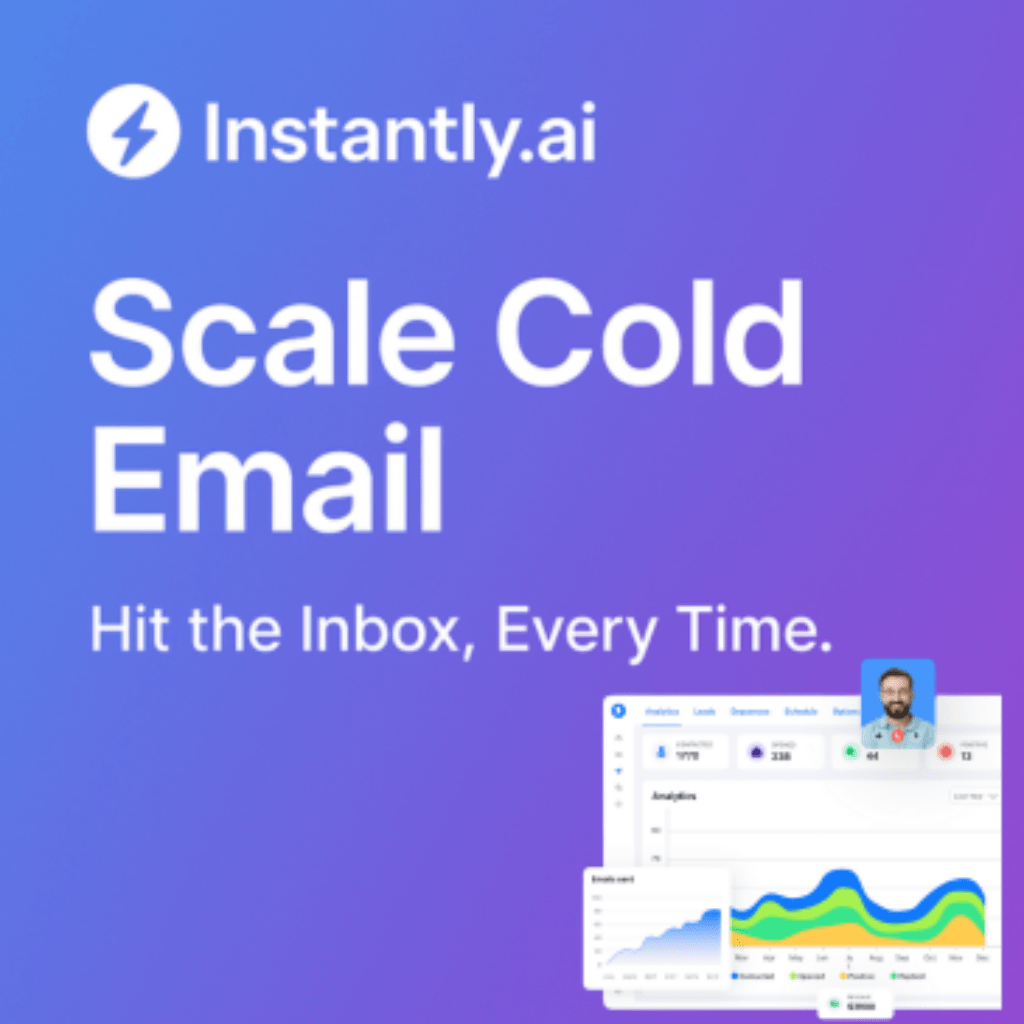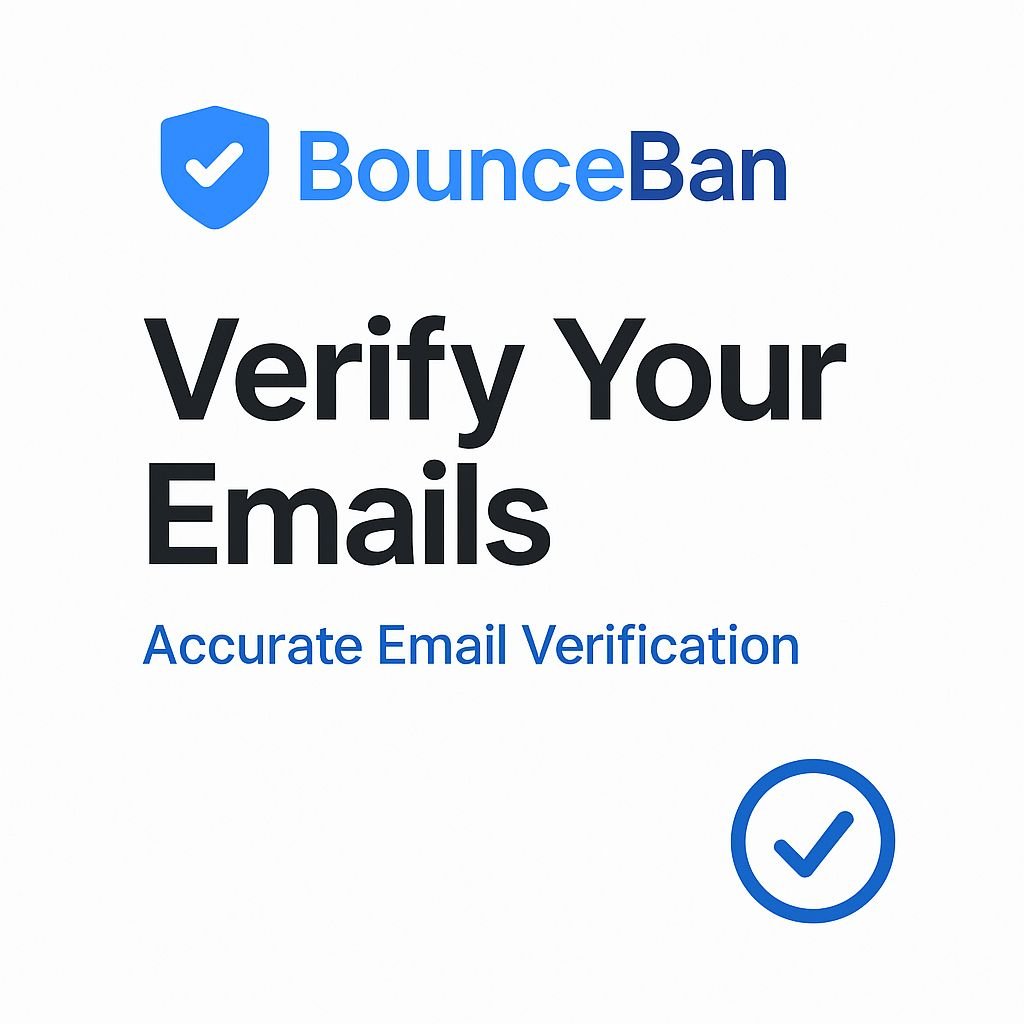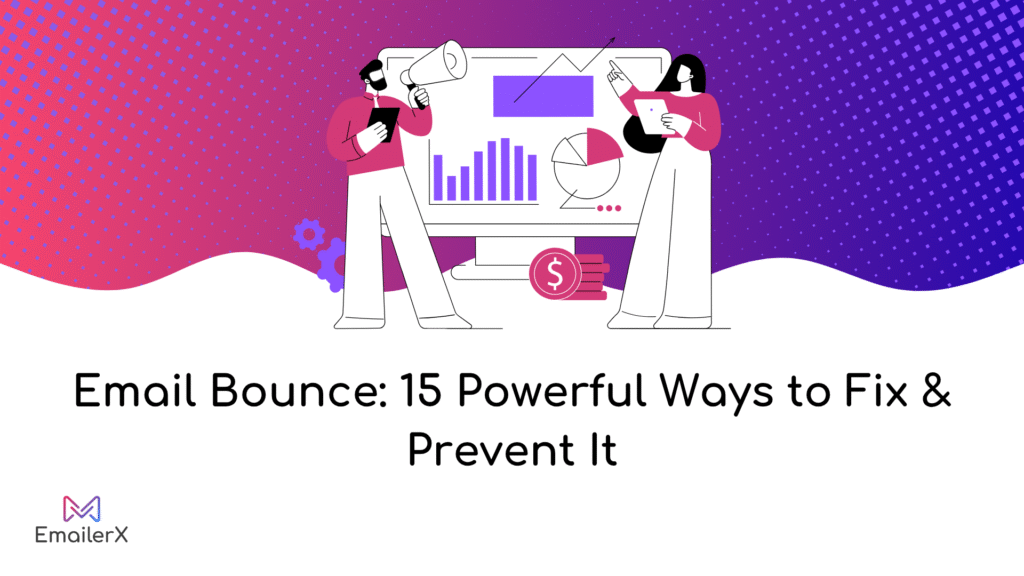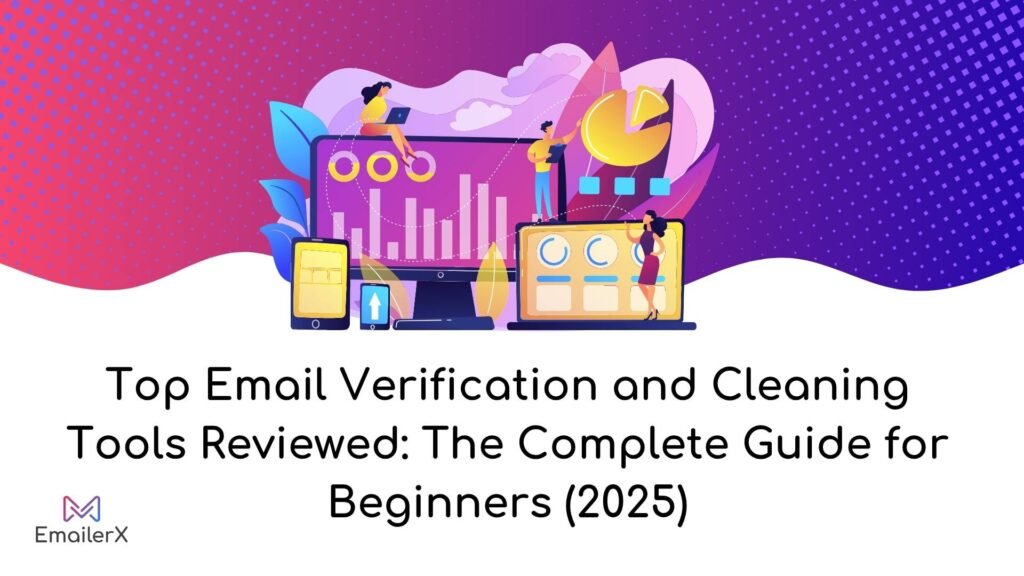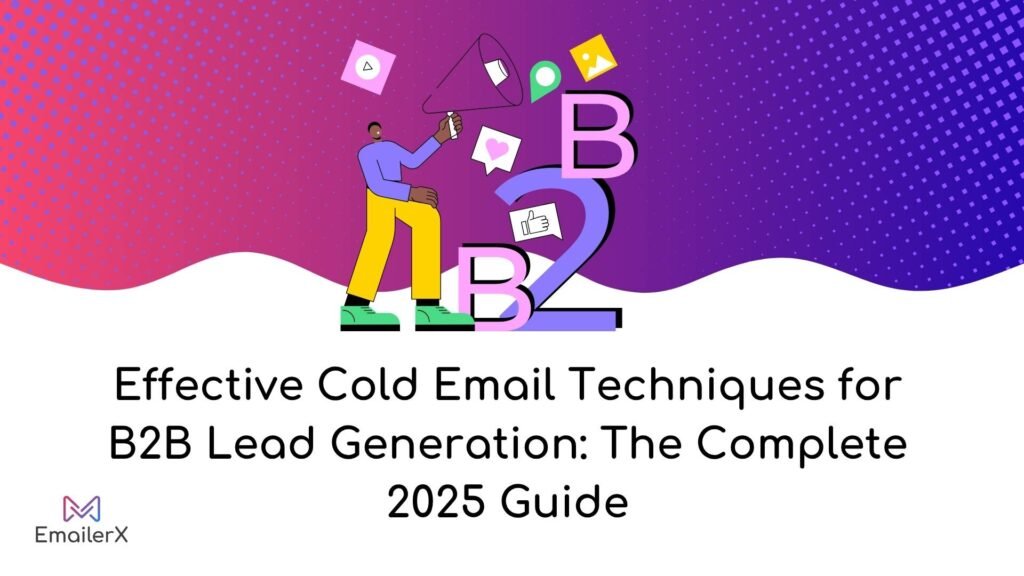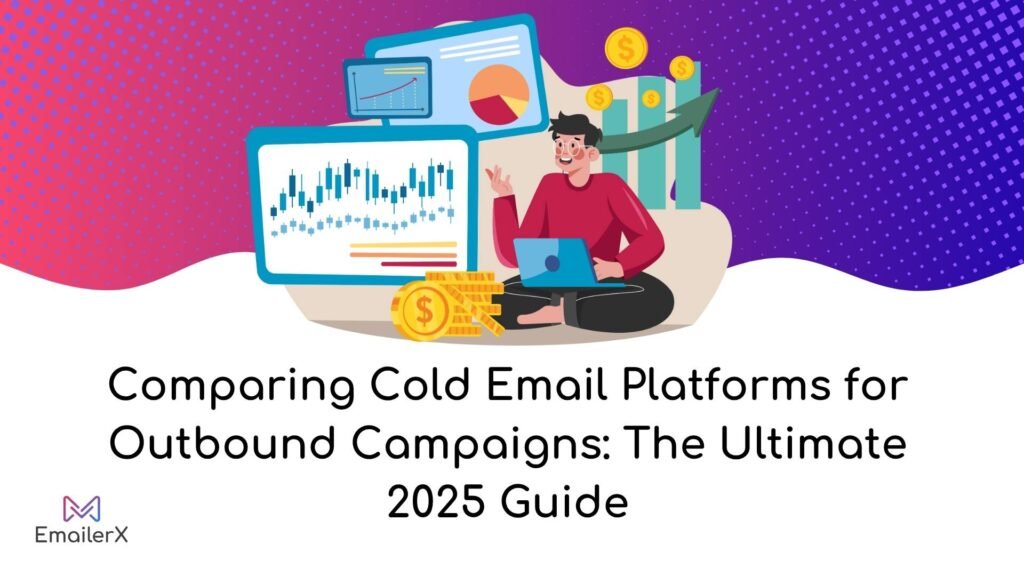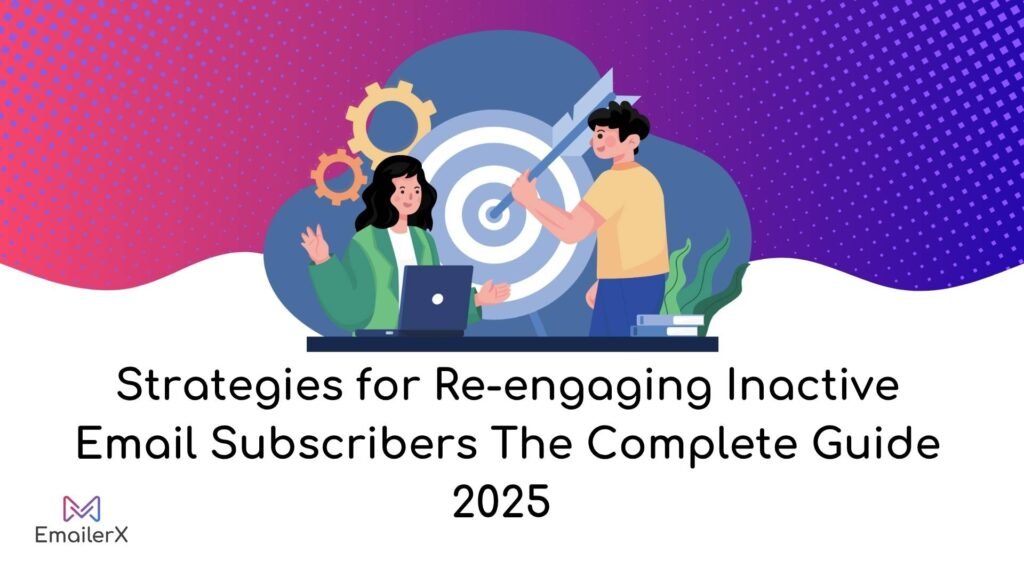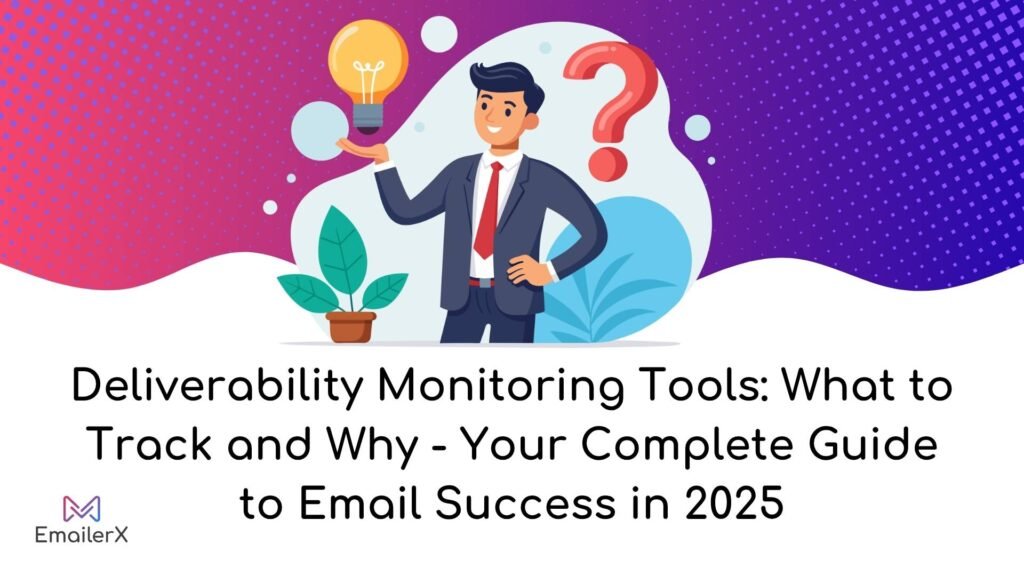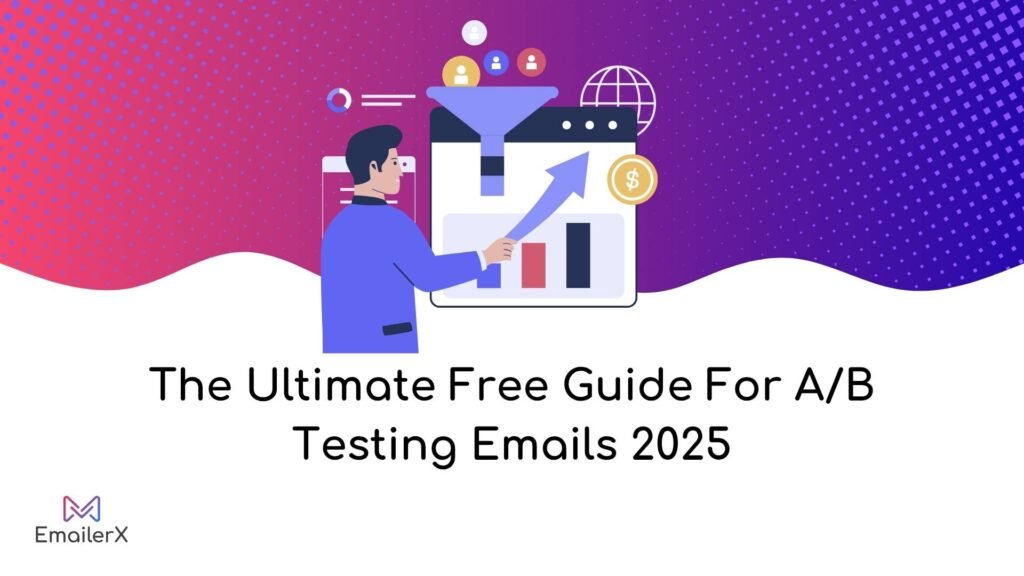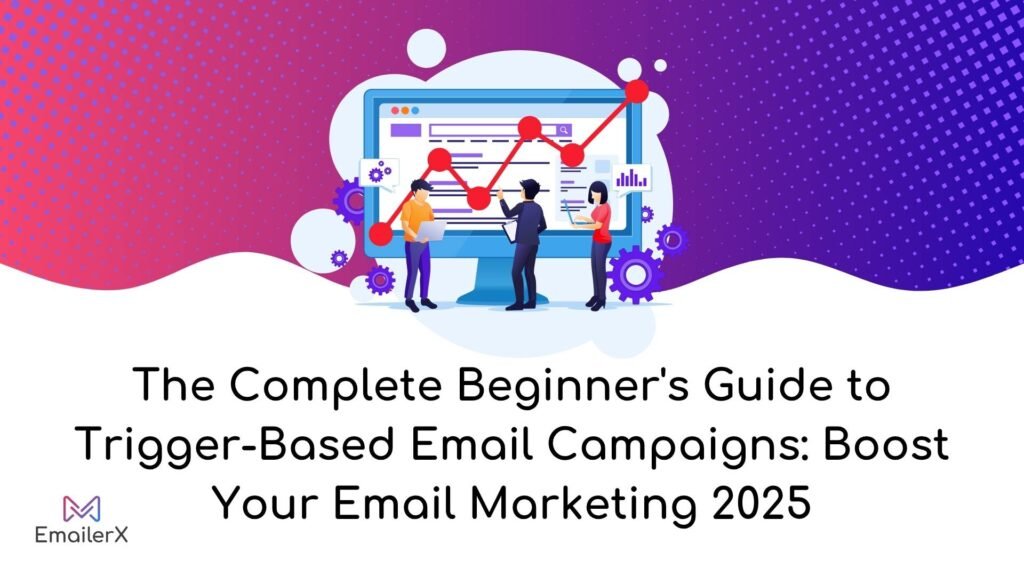Are you tired of watching your carefully crafted emails land in spam folders while your open rates continue to plummet?
You’re not alone countless marketers struggle with unorganized subscriber lists, poor segmentation, and the constant battle against increasingly strict email filters that seem to change overnight.
The good news is that discovering the best tools for email list management and segmentation can transform your campaigns from inbox disasters into engagement goldmines, giving you the power to reach the right people with the right message every time.

Whether you’re a complete beginner struggling with basic list organization or an experienced marketer looking to scale your email operations, this comprehensive guide will walk you through the 15 best tools for email list management and segmentation that can revolutionize your email marketing strategy in 2025.
Table of Contents
ToggleWhat is Email List Management and Segmentation?

Email list management involves organizing, maintaining, and optimizing your subscriber database to ensure maximum deliverability and engagement. It includes tasks like:
- Cleaning invalid email addresses
- Managing subscriber preferences
- Monitoring engagement metrics
- Ensuring compliance with regulations (GDPR, CAN-SPAM)

Email list division involves organizing your subscriber database into focused, smaller segments according to particular characteristics including:
- Demographics (age, location, gender)
- Behavior (purchase history, website activity)
- Engagement levels (opens, clicks, conversions)
- Customer lifecycle stage (new subscribers, loyal customers)
When combined effectively, these practices can increase your email revenue by up to 300% compared to non-segmented campaigns.
Why Email Segmentation is Crucial for Beginners

If you’re new to email marketing, you might think sending the same message to everyone saves time. However, this “spray and pray” approach often leads to:
The Problems with Generic Email Campaigns:
- Low engagement rates (average open rates drop below 15%)
- High unsubscribe rates (leading to list decay)
- Poor deliverability (ISPs flag your emails as spam)
- Wasted marketing budget (low conversion rates)
The Benefits of Proper Segmentation:
- 760% increase in revenue from segmented campaigns
- 14.31% higher open rates than non-segmented emails
- 100.95% higher click-through rates
- Better customer relationships through personalized content
Pro Tip: Start with just 2-3 basic segments (new subscribers, engaged users, and inactive subscribers) before expanding to more complex segmentation strategies.
Top 15 Email List Management and Segmentation Tools

Let’s dive into the best tools for email list management and segmentation, categorized by business size and budget to help you make the right choice.
Enterprise-Level Solutions
Finding the best tools for email list management and segmentation can feel overwhelming when you’re faced with dozens of platforms, each claiming to be the ultimate solution for your business needs.

The truth is, not all businesses require the same features—what works perfectly for a growing startup might be complete overkill for a local service business, while enterprise-level companies need robust capabilities that basic tools simply can’t provide.
To cut through the marketing noise and identify the best tools for email list management and segmentation that actually fit your specific requirements, you need to evaluate your current situation, future goals, and budget constraints before making any decisions.
This strategic approach ensures you’ll invest in the best tools for email list management and segmentation that will grow with your business rather than limit your potential, saving you both time and money in the long run.
HubSpot Marketing Hub
Key Features:
- Advanced behavioral segmentation
- AI-powered contact scoring
- Complete CRM integration
- Detailed analytics and reporting
Segmentation Capabilities:
- Segment by lifecycle stage, lead score, and behavior
- Create smart lists that auto-update
- Advanced workflow automation
- Real-time personalization
Pricing: $800-$3,200/month Free Trial: 14 days
Salesforce Marketing Cloud
Key Features:
- Journey-based email automation
- Cross-channel data integration
- Einstein AI for predictive segmentation
- Enterprise-grade security
Segmentation Capabilities:
- Behavior-based journey mapping
- Predictive audience modeling
- Real-time data synchronization
- Advanced A/B testing
Pricing: $1,250-$4,000/month Free Trial: 30 days
Mid-Market Champions
Klaviyo
Key Features:
- Deep e-commerce integrations (Shopify, WooCommerce)
- Predictive analytics and recommendations
- Advanced segmentation based on purchase behavior
- Revenue tracking and attribution
Segmentation Capabilities:
- Purchase history and spending patterns
- Product affinity and browsing behavior
- Customer lifetime value predictions
- Seasonal and promotional engagement
Pricing: $20-$1,700/month Free Plan: Up to 250 contacts
ActiveCampaign
Key Features:
- Visual automation builder
- Built-in CRM functionality
- Advanced tagging and scoring
- Machine learning optimization
Segmentation Capabilities:
- Lead scoring and grading
- Website tracking and behavior
- Deal and pipeline segmentation
- Engagement-based automation
Pricing: $15-$279/month Free Trial: 14 days
GetResponse
Key Features:
- Easy-to-use automation builder
- Landing page creator
- Webinar hosting capabilities
- E-commerce tools
Segmentation Capabilities:
- Demographic and geographic targeting
- Engagement scoring
- Purchase behavior tracking
- Time-based segmentation
Pricing: $13-$1,099/month Free Trial: 30 days
Beginner-Friendly Options
Mailchimp
Key Features:
- Intuitive drag-and-drop editor
- Pre-built automation templates
- Social media integration
- Basic analytics
Segmentation Capabilities:
- Demographics and location
- Purchase behavior (with integration)
- Email engagement history
- Sign-up source tracking
Pricing: $0-$350/month Free Plan: Up to 500 contacts
Convert
Key Features:
- Tag-based subscriber management
- Visual automation rules
- Creator-focused templates
- Subscriber forms and landing pages
Segmentation Capabilities:
- Interest-based tagging
- Behavior triggers
- Course completion tracking
- Engagement sequences
Pricing: $0-$79/month (based on subscribers) Free Plan: Up to 1,000 subscribers
AWeber
Key Features:
- Professional email templates
- Autoresponder sequences
- List management tools
- Customer support
Segmentation Capabilities:
- Basic demographic segmentation
- Email engagement tracking
- Behavioral triggers
- Tag-based organization
Pricing: $12.50-$899/month Free Plan: Up to 500 subscribers
Specialized Solutions
Omnisend
Key Features:
- SMS and email integration
- Product recommendation engine
- Cart abandonment recovery
- Sales tracking
Segmentation Capabilities:
- Purchase history analysis
- Product browsing behavior
- Customer lifecycle stages
- Cross-channel engagement
Pricing: $11-$59/month Free Plan: Up to 250 contacts
Drip
Key Features:
- Advanced e-commerce automation
- Revenue tracking
- Customer journey mapping
- Predictive sending
Segmentation Capabilities:
- Revenue-based segmentation
- Product affinity modeling
- Customer value scoring
- Seasonal behavior patterns
Pricing: $39-$1,599/month Free Trial: 14 days
Budget-Friendly Options
MailerLite
Key Features:
- Simple automation workflows
- Landing page builder
- Pop-up and form creator
- Basic analytics
Segmentation Capabilities:
- Geographic segmentation
- Engagement-based groups
- Custom field targeting
- Subscription preferences
Pricing: $0-$50/month Free Plan: Up to 1,000 subscribers
Constant Contact
Key Features:
- Event management tools
- Social media integration
- Survey and poll features
- Extensive template library
Segmentation Capabilities:
- Contact list organization
- Activity-based segmentation
- Interest categories
- Local event targeting
Pricing: $12-$80/month Free Trial: 60 days
Marketo Engage (Adobe)
Key Features:
- Account-based marketing
- Lead nurturing programs
- Revenue attribution
- Advanced analytics
Segmentation Capabilities:
- Account-level segmentation
- Engagement programs
- Behavioral scoring
- Multi-touch attribution
Pricing: $1,195-$5,115/month Custom Demo: Available upon request
Pardot (Salesforce)
Key Features:
- Native Salesforce integration
- Lead scoring and grading
- Progressive profiling
- ROI reporting
Segmentation Capabilities:
- Lead qualification scoring
- Sales funnel segmentation
- Campaign member targeting
- Opportunity-based lists
Pricing: $1,250-$4,000/month
Moosend
Key Features:
- Advanced automation workflows
- AI-powered personalization
- Real-time analytics
- GDPR compliance tools
Segmentation Capabilities:
- Behavioral targeting
- Geographic segmentation
- E-commerce tracking
- Custom field filtering
Pricing: $9-$2,600/month Free Plan: Up to 1,000 subscribers
Free vs. Paid Email Management Tools
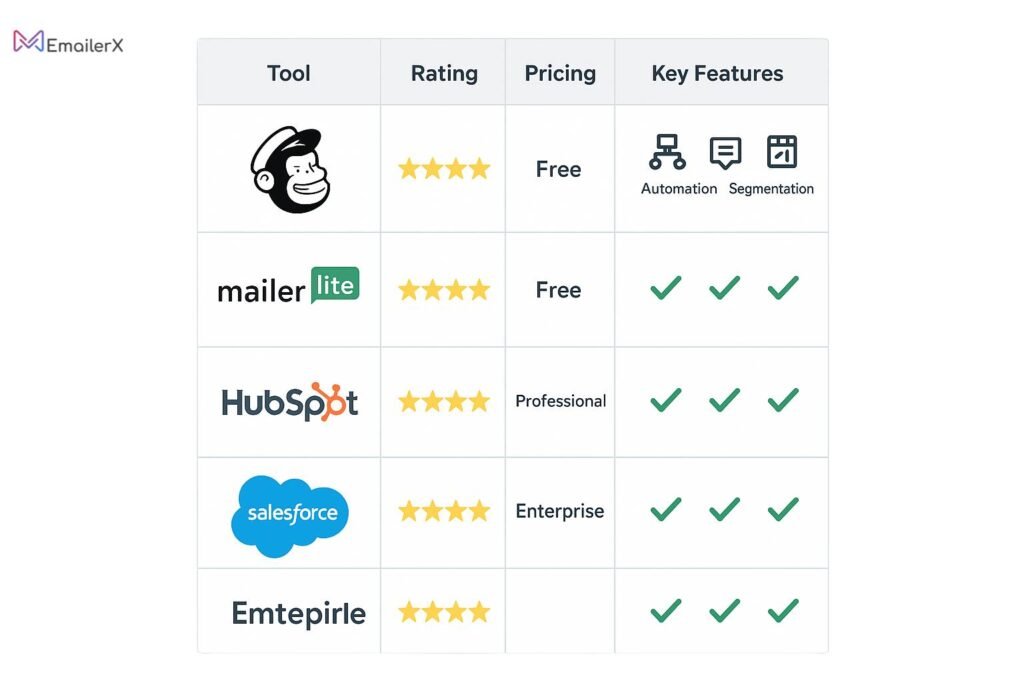
When Free Tools Work:
- Small subscriber lists (under 1,000 contacts)
- Basic email campaigns (newsletters, announcements)
- Limited automation needs
- Tight budget constraints
When to Upgrade to Paid:
- Advanced segmentation requirements
- Complex automation workflows
- E-commerce integrations
- Detailed analytics and reporting
- Priority customer support
Cost-Benefit Analysis:

Most businesses see a 300-500% ROI within the first year of upgrading to paid email marketing tools due to:
- Improved deliverability rates
- Higher engagement and conversion rates
- Time savings through automation
- Better customer insights
How to Choose the Right Tool for Your Business
Selecting from the countless options available can feel overwhelming when you’re searching for the best tools for email list management and segmentation that truly fit your unique business needs.

The truth is, the “best” tool isn’t necessarily the most expensive or feature-packed option; it’s the one that aligns perfectly with your business size, goals, technical capabilities, and budget constraints.
Let’s break down the essential factors you need to consider to make an informed decision that will set your email marketing up for long-term success.
For E-commerce Businesses:
Recommended: Klaviyo, Omnisend, or Drip
- Product recommendation engines
- Cart abandonment workflows
- Revenue tracking capabilities
- Purchase behavior segmentation
For B2B Companies:
Recommended: HubSpot, ActiveCampaign, or Pardot
- Lead scoring and grading
- CRM integration
- Account-based targeting
- Sales funnel optimization
For Content Creators:
Recommended: ConvertKit, AWeber, or MailerLite
- Tag-based segmentation
- Course completion tracking
- Creator-friendly templates
- Simple automation workflows
For Small Local Businesses:
Recommended: Constant Contact, Mailchimp, or Get Response
- Local event management
- Simple contact organization
- Social media integration
- Template libraries
Advanced Segmentation Strategies
Moving beyond basic demographic splits, advanced segmentation strategies separate email marketing winners from those still struggling with generic campaigns.

While the best tools for email list management and segmentation offer powerful features, many marketers only scratch the surface of their capabilities, missing out on the sophisticated targeting that drives exceptional results.
The most successful email campaigns leverage behavioral triggers, purchase history patterns, and engagement scoring systems—but only when you know how to implement these strategies using the best tools for email list management and segmentation effectively.
In this section, we’ll explore cutting-edge segmentation techniques that top marketers use with the best tools for email list management and segmentation to create hyper-personalized campaigns that consistently outperform industry benchmarks and drive meaningful business growth.
Once you’ve chosen your tool, implement these proven segmentation strategies:
1. Behavioral Segmentation
- Email engagement levels (highly engaged, moderately engaged, inactive)
- Website behavior (pages visited, time spent, downloads)
- Purchase patterns (frequent buyers, seasonal shoppers, one-time customers)
2. Lifecycle Stage Segmentation
- New subscribers (welcome series, introduction content)
- Engaged prospects (nurturing campaigns, educational content)
- Customers (upselling, cross-selling, loyalty programs)
- Inactive users (re-engagement campaigns, win-back offers)
3. Value-Based Segmentation
- High-value customers (VIP treatment, exclusive offers)
- Medium-value customers (upgrade campaigns, loyalty rewards)
Low-value customers (educational content, value demonstration)
4. Geographic and Temporal Segmentation
- Location-based (local events, regional offers, timezone optimization)
- Seasonal patterns (holiday campaigns, weather-based content)
- Time-sensitive (flash sales, limited-time offers)
Common Mistakes to Avoid

1. Over-Segmentation
Creating too many small segments that don’t provide meaningful differences in messaging or offers.
Solution: Start with 3-5 broad segments and refine based on performance data.
2. Under-Utilizing Data
Only using basic demographic information instead of behavioral and engagement data.
Solution: Implement tracking for website behavior, email engagement, and purchase patterns.
3. Ignoring List Hygiene
Keeping inactive subscribers who hurt deliverability rates.
Resolution: Establish an automated removal process to eliminate subscribers who show persistent lack of engagement over time.
4. Poor Integration
Not connecting email tools with CRM, e-commerce, or analytics platforms.
Resolution: Select platforms featuring strong connectivity options and establish seamless information exchange between systems.
5. Inconsistent Testing
Not regularly testing different segments, subject lines, and content variations.
Solution: Implement A/B testing for all major campaigns and segments.
Integration Opportunities for EmailerX

To maximize your email marketing success, consider integrating these complementary tools from EmailerX:
- Email Deliverability Tools – Ensure your segmented emails reach the inbox
- Email Template Builder – Create personalized templates for each segment
- Email Performance Monitor – Measure segment effectiveness and return on investment metrics
- Email Automation Workflows – Set up advanced behavioral triggers
- List Cleaning Services – Maintain healthy segmented lists
Frequently Asked Questions
What is the best email list management tool for beginners?
Mailchimp and MailerLite are excellent choices for beginners due to their intuitive interfaces, comprehensive free plans, and extensive learning resources. Both offer basic segmentation features that are perfect for getting started with targeted email marketing.
How much should I spend on email marketing tools?
Most businesses should budget $50-200 per month for email marketing tools, depending on list size and feature requirements. The ROI typically ranges from 300-4200%, making it one of the most profitable marketing investments.
Can I segment my email list without technical knowledge?
Yes Modern email marketing platforms like ConvertKit, ActiveCampaign, and Klaviyo offer visual, drag-and-drop segmentation builders that require no coding knowledge. Many also provide pre-built segments based on common use cases.
What’s the difference between email lists and segments?
An email list is your entire subscriber database, while segments are smaller, targeted groups within that list based on specific criteria like behavior, demographics, or engagement levels. Segmentation allows for more personalized and effective messaging.
How often should I clean my email list?
Regular list maintenance should occur monthly for frequently used databases, while thorough quarterly reviews ensure comprehensive subscriber management and data hygiene. This includes removing hard bounces, unengaged subscribers, and invalid email addresses to maintain good deliverability.
Which email tools offer the best automation features?
ActiveCampaign, HubSpot, and Klaviyo are leaders in email automation, offering visual workflow builders, behavioral triggers, and advanced conditional logic for sophisticated email sequences.
Is email segmentation worth it for small businesses?
Absolutely! Organizations of all sizes experience notable performance gains, with standard segmentation practices yielding improvements of 14.31% in email open rates and remarkable 100.95% increases in click-through engagement. Start simple with engagement-based segments.
How do I integrate email tools with my e-commerce platform?
Most modern email tools offer native integrations with popular e-commerce platforms like Shopify, WooCommerce, and Magento. Klaviyo and Omnisend are particularly strong for e-commerce integration.
What are the most important email metrics to track for segments?
Focus on open rates, click-through rates, conversion rates, and revenue per email for each segment. Also monitor list growth, unsubscribe rates, and deliverability metrics.
Can I use multiple email tools together?
Yes, many businesses use specialized tools for different purposes (e.g., Klaviyo for e-commerce, HubSpot for lead nurturing). Ensure proper data synchronization and avoid email conflicts by managing sending frequencies.

